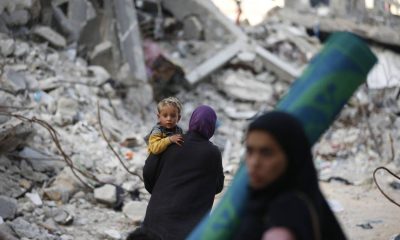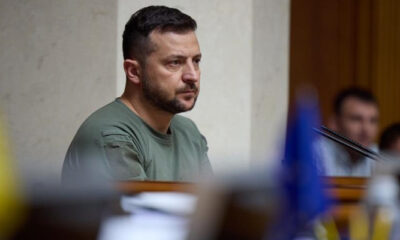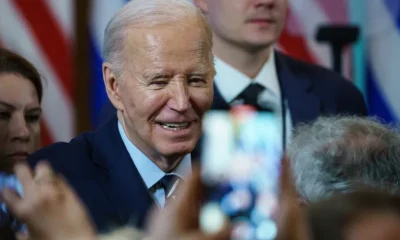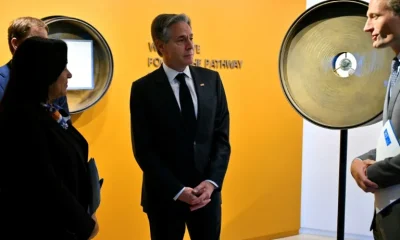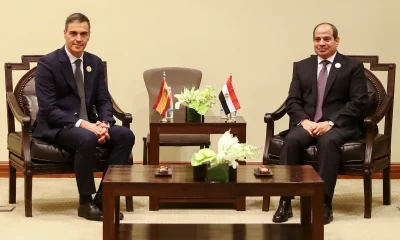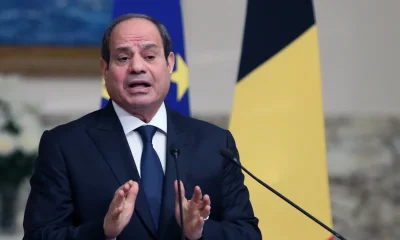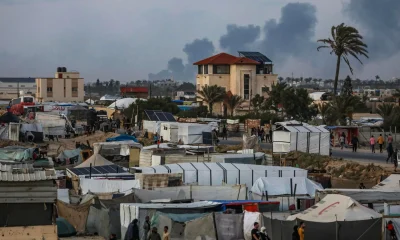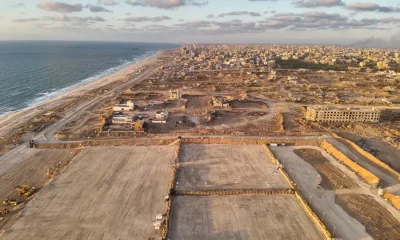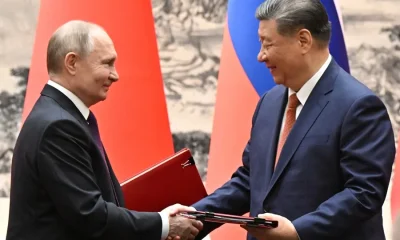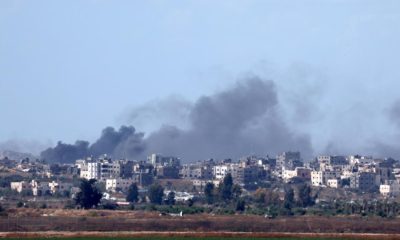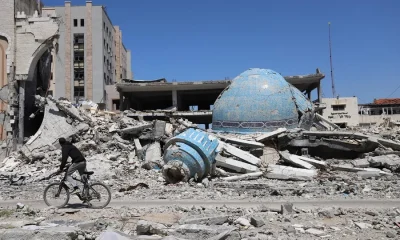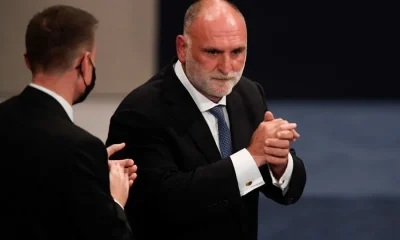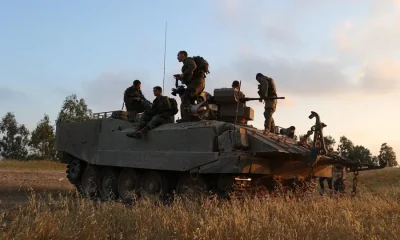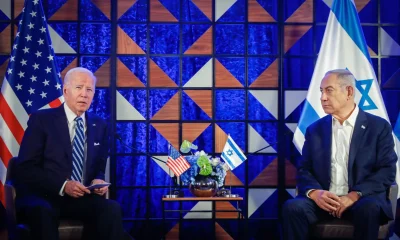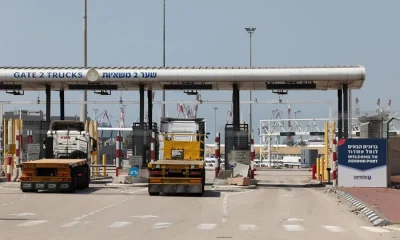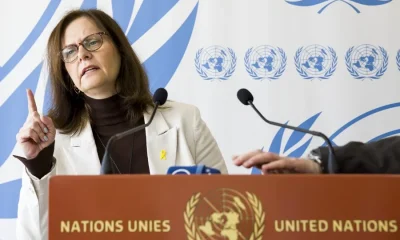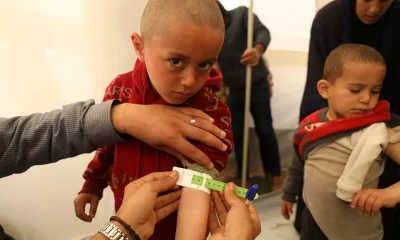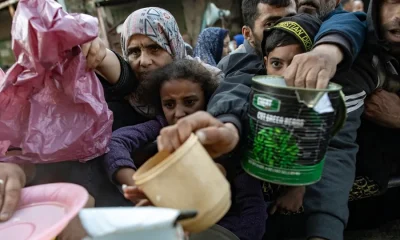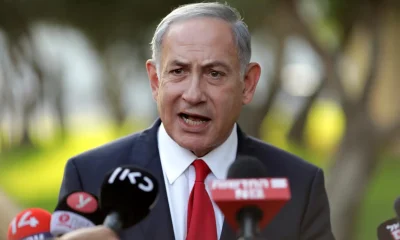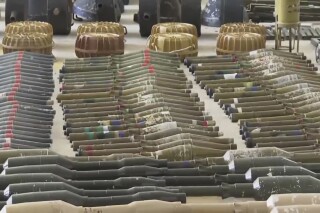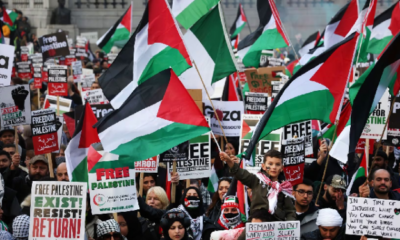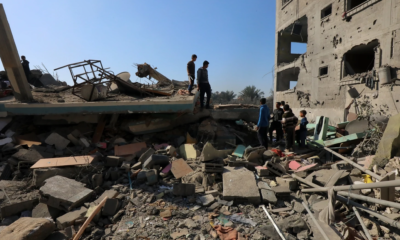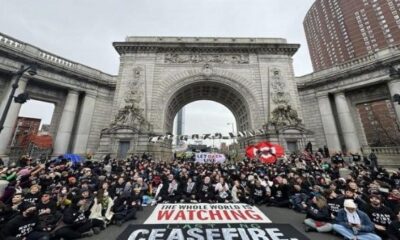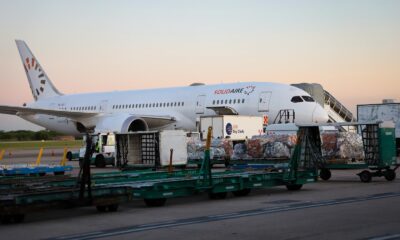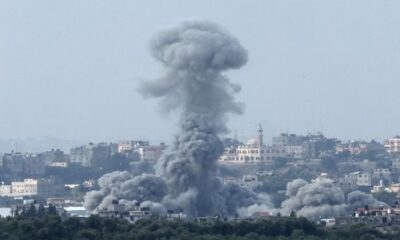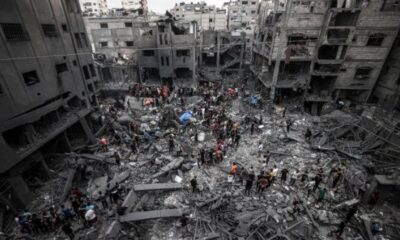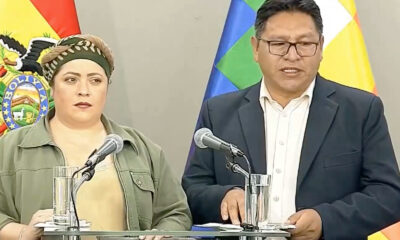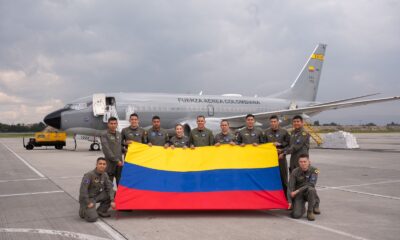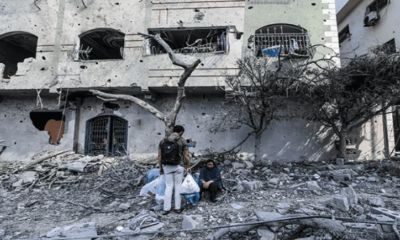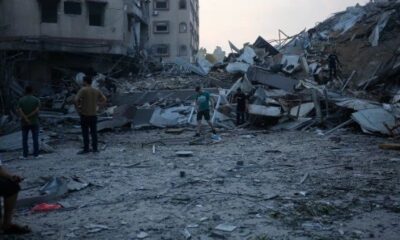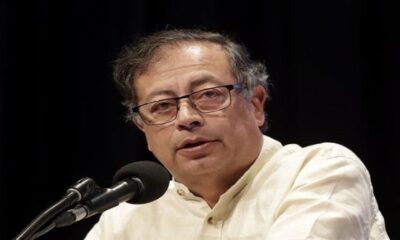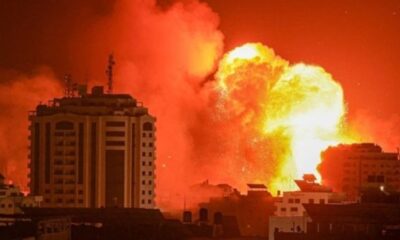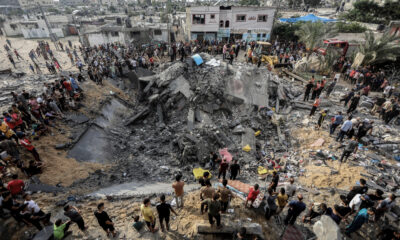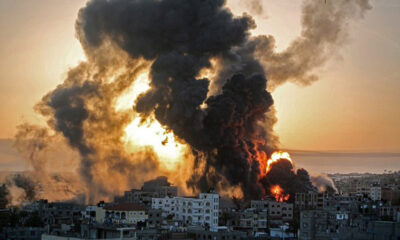International
Global conflict surge in 2024 sees a 25% increase in political violence and 223,000 deaths
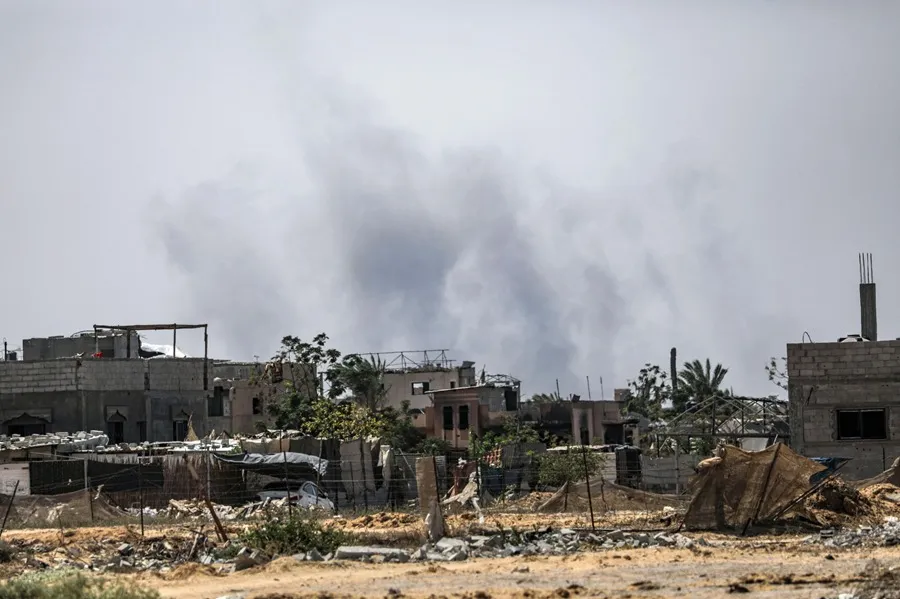
The world experienced a new surge in conflicts in 2024, according to data provided by the NGO Armed Conflict Location and Event Data (ACLED), which maps conflicts across all regions. Political violence increased by 25% worldwide in 2024 compared to 2023, with one in eight people exposed to conflict and 223,000 deaths, according to the NGO’s estimates.
The data also suggests that global conflicts have doubled in the past five years. Another study from the International Institute for Strategic Studies (IISS) concludes that the intensity and human cost of armed conflicts are also rising, with 37% more deaths in the year up to June of the previous year compared to the same period a year earlier.
According to ACLED, “Palestine is the most conflicted country in the world,” and “the Middle East is the most affected region.” The organization bases its assessment on four indicators: mortality, danger, diffusion, and fragmentation of armed conflicts. It estimates that 81% of the Palestinian population is exposed to conflict, with 35,000 deaths recorded in the last 12 months. In the Palestinian territories, an average of 52 conflict incidents occur daily.
Since the war between Israel and Hamas erupted in October 2023, the UN estimates that more than 45,000 Palestinians have died in Gaza. ACLED counts over 50,000 deaths in the Palestinian territories, including the West Bank and East Jerusalem. Meanwhile, the war in Ukraine remains the deadliest in the world, and Myanmar, where the internal conflict has ravaged the country since the military coup in 2021, has the highest number of armed groups.
International
King Charles III expresses deep sadness after Vancouver festival tragedy that left nine dead

King Charles III of the United Kingdom, head of state of Canada, expressed his “deep sadness” along with Queen Camilla on Sunday, after a driver plowed into a crowd on Saturday in Vancouver during a street festival, leaving nine dead.
“Our thoughts and prayers are with all those whose lives have been shattered by this terrible tragedy, and we offer our deepest condolences during this time of distress for so many in Canada,” the monarch wrote in a message on X.
The multiple-hit-and-run incident occurred on Saturday after 8:00 pm (03:00 GMT Sunday) when members of the Filipino community were celebrating Lapu Lapu Day, authorities reported.
The street festival commemorates a 16th-century Filipino anti-colonial leader and took place the weekend before the Canadian elections. “At this time, we can confirm that nine people have died after a man ran into a crowd at the Lapu Lapu Festival last night,” the police said on X.
International
Nine dead after driver runs over crowd at Vancouver Street Festival
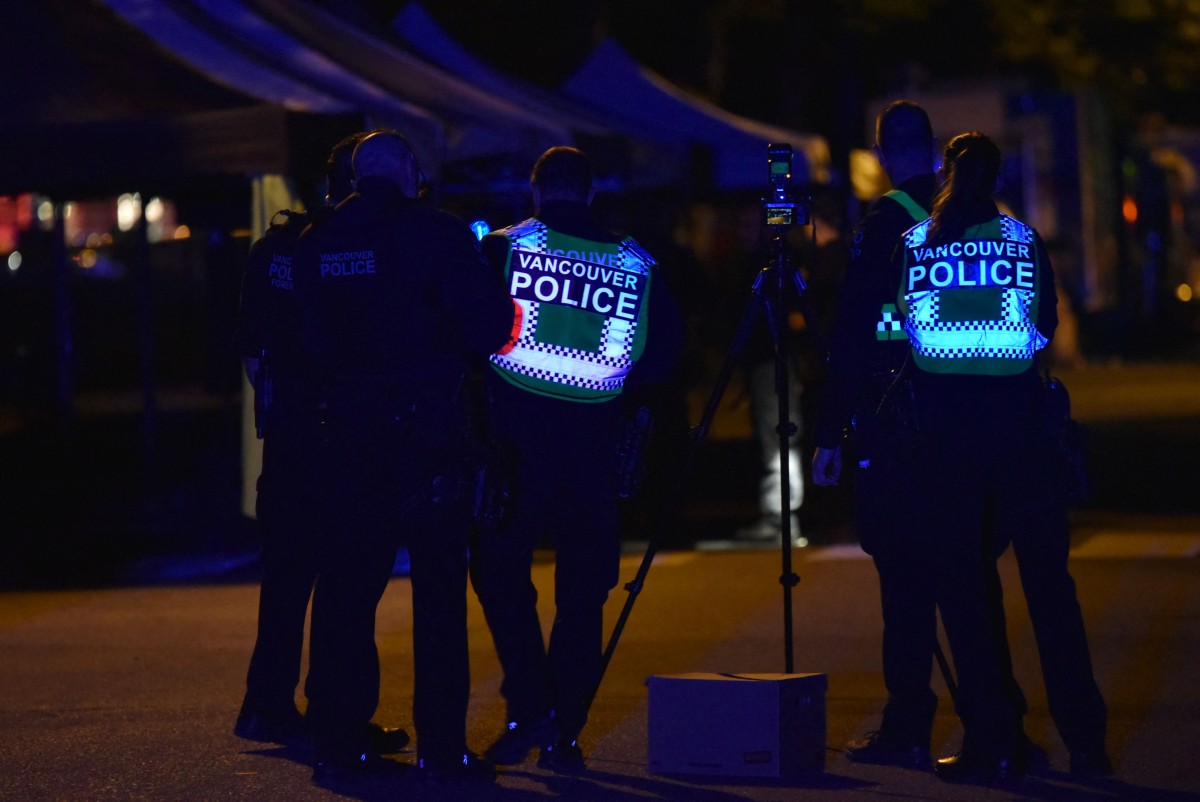
Nine people were killed when a driver ran over a crowd during a street festival in the Canadian city of Vancouver, the police reported.
“Several people have died and several others were injured,” the Vancouver police said on X. “The driver is in custody,” they added. The incident occurred when members of the Filipino community gathered to celebrate Lapu Lapu Day, as posted on X by Vancouver Mayor Ken Sim.
The festival commemorates a 16th-century Filipino anti-colonial leader.
“Our thoughts are with everyone affected and with Vancouver’s Filipino community during this incredibly difficult time,” added Sim.
International
Cardinals seek a “unifier” as they prepare for conclave to elect new pope

Several cardinals who will participate in the conclave to elect Pope Francis’ successor said they are approaching the mission with “apprehension,” “responsibility,” and “hope,” while also beginning to outline the profile of the next pope: a “unifier.”
The 12-year pontificate of the first Latin American pope was marked by reforms and a simple style, which earned him strong opposition from the Church’s most conservative sectors, with his predecessor Benedict XVI as a symbol of that resistance.
“The task before us these days is greater than us, and yet it is a duty we must fulfill,” summarized French Cardinal Jean-Marc Aveline during a mass in Rome on Thursday evening.
A few meters away, Luxembourg Cardinal Jean-Claude Hollerich admitted to journalists that he approaches the conclave “with a certain apprehension,” but also with “great hope.”
“We feel very small. We must make decisions for the entire Church, so please pray for us,” added the Jesuit cardinal, who was a close advisor to the Argentine pontiff.
He estimated that the conclave would “probably” begin on May 5 or 6, after the nine-day mourning period at the Vatican known as the Novendiales.
-

 International5 days ago
International5 days agoEl Salvador formalizes the proposal for the exchange of Venezuelan deportees, according to Bukele
-

 International5 days ago
International5 days agoFrom the transfer of the coffin to the funeral, three days to say goodbye to Pope Francis
-

 International5 days ago
International5 days agoA very heterogeneous and divided conclave will elect the new pope
-

 International5 days ago
International5 days agoModi returns to India and shortens his visit to Saudi Arabia after a deadly attack in Kashmir
-

 International3 days ago
International3 days ago“A dignified life” for migrants, the plea in Panama in memory of Pope Francis
-

 International3 days ago
International3 days agoA magnitude 6 earthquake shakes the province of Esmeraldas in Ecuador, bordering Colombia
-

 International3 days ago
International3 days agoThe Arab League supports Hamas handing over control of Gaza and weapons to the Palestinian Authority
-

 International3 days ago
International3 days agoA Russian general dies in the explosion of a car bomb near Moscow
-

 International3 days ago
International3 days agoThe Pope’s funeral procession through the center of Rome worries the Italian authorities
-

 International5 days ago
International5 days agoDonald Trump will visit Saudi Arabia, Qatar and the United Arab Emirates in mid-May
-

 International5 days ago
International5 days agoThe Peruvian Public Ministry denounces the former attorney general for an alleged corruption case
-

 International5 days ago
International5 days agoMaradona’s house arrest is again a focus of tension in the trial for his death
-

 International5 days ago
International5 days agoA judge orders the Trump Government to restore Voice of America services
-

 International2 days ago
International2 days agoCardinals seek a “unifier” as they prepare for conclave to elect new pope
-

 International3 days ago
International3 days agoMigrants want to stay on Mexico’s southern border because of Sheinbaum’s industrial plan
-

 International5 days ago
International5 days agoThe president of the World Bank underlines his intention to lift his veto on nuclear energy
-

 International2 days ago
International2 days agoTrump and Zelensky hold “very productive” meeting in Rome during Pope’s funeral
-

 International3 days ago
International3 days agoAbout 150,000 people say goodbye to the pope in St. Peter’s Basilica before the funeral
-

 International3 days ago
International3 days agoA group of the poor and a delegation of migrants will participate in the funeral and burial of the pope on Saturday
-

 International3 days ago
International3 days agoPope Francis’ funeral procession will be a six-kilometer journey through the heart of Rome
-

 International5 days ago
International5 days agoMarco Rubio reorganizes the State Department to eliminate offices and jobs
-
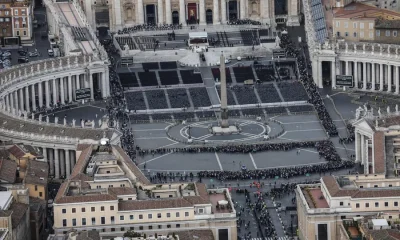
 International3 days ago
International3 days agoPreparations for Pope Francis’ funeral, in figures
-

 International3 days ago
International3 days agoPutin and Witkoff address possible direct negotiations between Russia and Ukraine
-

 International5 days ago
International5 days agoThe Brazilian Supreme Court opens trial against six others accused of leading the coup attempt
-

 International3 days ago
International3 days agoFrom email to marriage: the day Pope Francis married a Uruguayan couple
-

 International3 days ago
International3 days agoThe pope’s doctor reveals his last moments of life and that he wanted to “die at home”
-

 International3 days ago
International3 days agoThe protocol for the funeral of Pope Francis, a delicate diplomatic work
-

 International5 days ago
International5 days agoA judge in the United States stops the deportation to El Salvador of a hundred Venezuelans
-
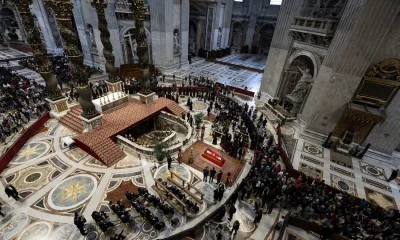
 International3 days ago
International3 days agoSocial networks, protagonists in the farewell to Pope Francis for ‘selfies’ in front of his coffin
-

 International14 hours ago
International14 hours agoNine dead after driver runs over crowd at Vancouver Street Festival
-
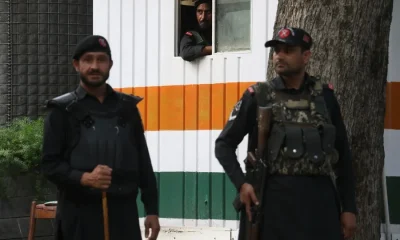
 International3 days ago
International3 days agoIndia asks to identify Pakistani citizens in the country to ensure their departure before Sunday
-

 International14 hours ago
International14 hours agoKing Charles III expresses deep sadness after Vancouver festival tragedy that left nine dead
-
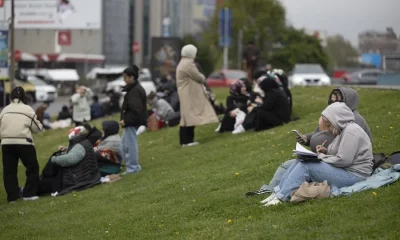
 International3 days ago
International3 days agoA 4.5 magnitude earthquake shakes the coast of the Aegean Sea in Turkey without leaving injuries or damage
-
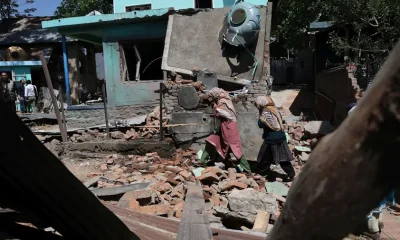
 International3 days ago
International3 days agoIndia destroys the homes of the alleged attackers in Kashmir with excavators







